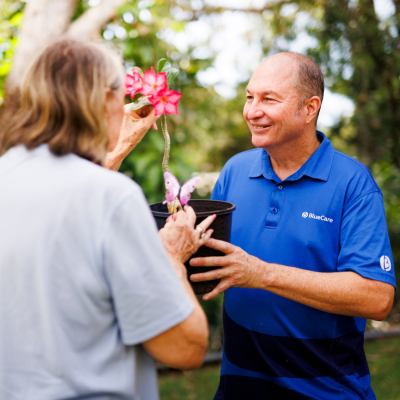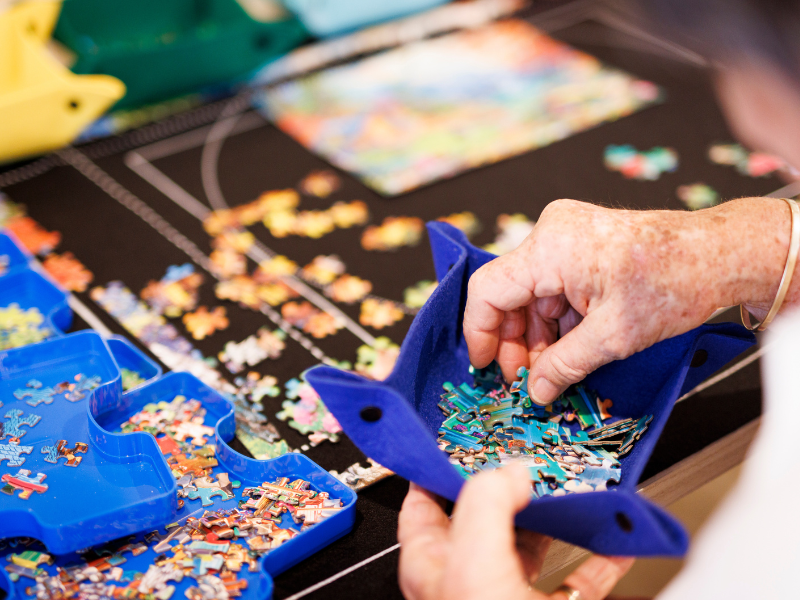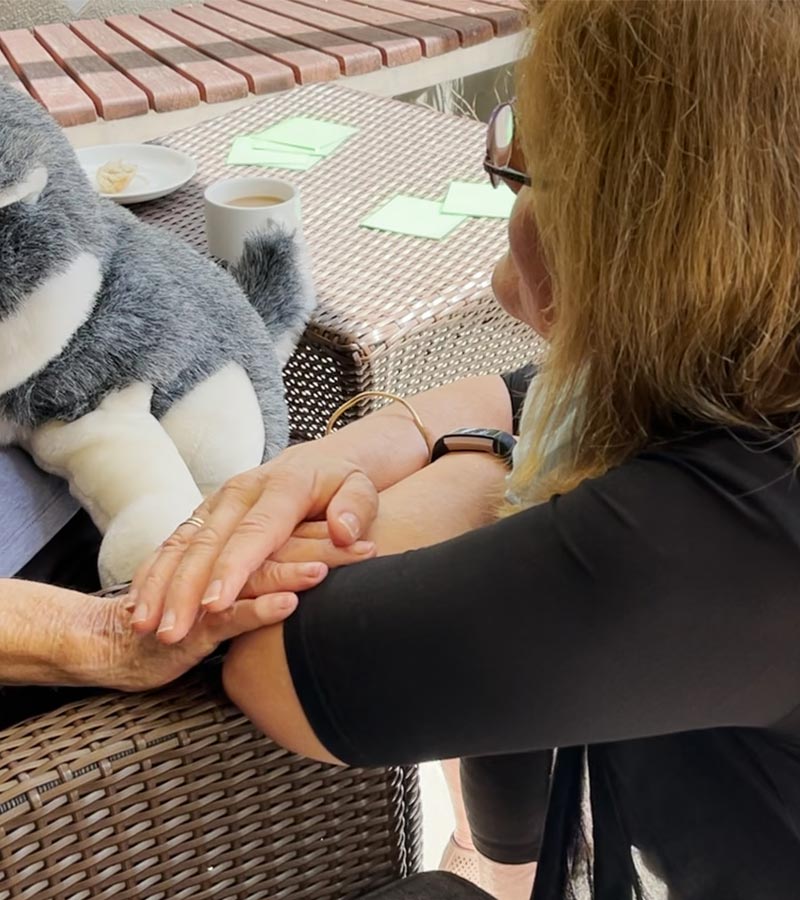Supporting your journey, at every stage
Living with dementia, or caring for someone who does, can be challenging and overwhelming. At BlueCare, we focus on the individual and their experience, as well as the vital role of their carer, offering practical advice and tailored support to help you and your loved ones live well with dementia.

Support at home

Residential Aged Care

Dementia consultancy

Donate

Grief and loss

Resources
Frequently asked questions
-
What is dementia?
The World Health Organisation describes dementia as an umbrella term for several diseases affecting memory, other cognitive abilities and behaviour that interfere with a person’s ability to maintain their activities of daily living.
There are more than 100 types of Dementia, with Alzheimer’s disease being the most common, followed by Vascular dementia, Lewy Body disease and frontal lobe dementia. Currently there is no cure. Dementia Australia has many useful resources about Dementia and operates the National Dementia Helpline on 1800 100 500. At BlueCare, we understand that every person living with dementia is a unique individual with a rich life history. Our employees are trained to see the individual first and will work with them and their family to find out as much as possible about them. This assists our employees to develop tailor-made programs that assist the person to be all they can be, focussing on what the person can do, rather than what they can’t. -
How do I access dementia care services?
Accessing dementia care services usually begins with an assessment of needs. In Australia, this can be done through the Government’s My Aged Care service, which will help determine what support is available and suitable. You can also contact BlueCare directly — our friendly team can guide you through the process, answer your questions, and help you access the care that’s right for you or your loved one.
Support at home -
What are the early signs of dementia?
The early signs of dementia can vary, but often include memory loss, confusion, difficulty finding the right words, and changes in mood or behaviour. A person may also struggle with daily tasks they previously found easy, or become disoriented in familiar places. If you or someone you care about is showing these signs, it’s important to speak with a healthcare professional for assessment and advice.
-
What services are available for people living with dementia?
A range of services are available to support people living with dementia and their families. These may include in-home care, respite care, dementia-specific day programmes, allied health services, and residential aged care with specialised dementia support. At BlueCare, we offer tailored dementia care that helps individuals live well and safely, whether in their own home or within one of our caring communities.
-
How to care for someone living with dementia?
Caring for someone living with dementia requires patience, compassion and understanding. It’s important to create a safe, familiar and supportive environment that helps them feel comfortable and valued. Keeping routines consistent, encouraging independence where possible, and providing gentle reminders can all make a difference. It’s also essential to look after your own wellbeing as a carer and seek support when needed. There are services available that can provide professional care, respite and guidance to help you along the way.
-
How much does dementia care cost?
The cost of Dementia care depends on the type and level of support needed. Some services may be subsidised by the Australian Government through aged care programmes, while others may involve private costs. At BlueCare, we can help you understand the options available, any government funding you may be eligible for, and what fees may apply, so you can make informed decisions with confidence.
-
Can someone with dementia live at home?
Yes, many people living with Dementia can continue to live at home with the right support in place. In-home Dementia care services can help with daily tasks, personal care and maintaining a safe, familiar environment. BlueCare offers flexible in-home care options tailored to individual needs, supporting both the person living with dementia and their family carers.
Support at home -
What is dementia care?
Dementia care is specialised support designed to meet the unique needs of people living with dementia. It focuses on maintaining dignity, independence and quality of life while managing the symptoms of the condition. Dementia care may include help with daily activities, personal care, medication support, and emotional wellbeing. It can be provided at home, in the community or within residential aged care settings, depending on individual needs.
Latest news
View more














